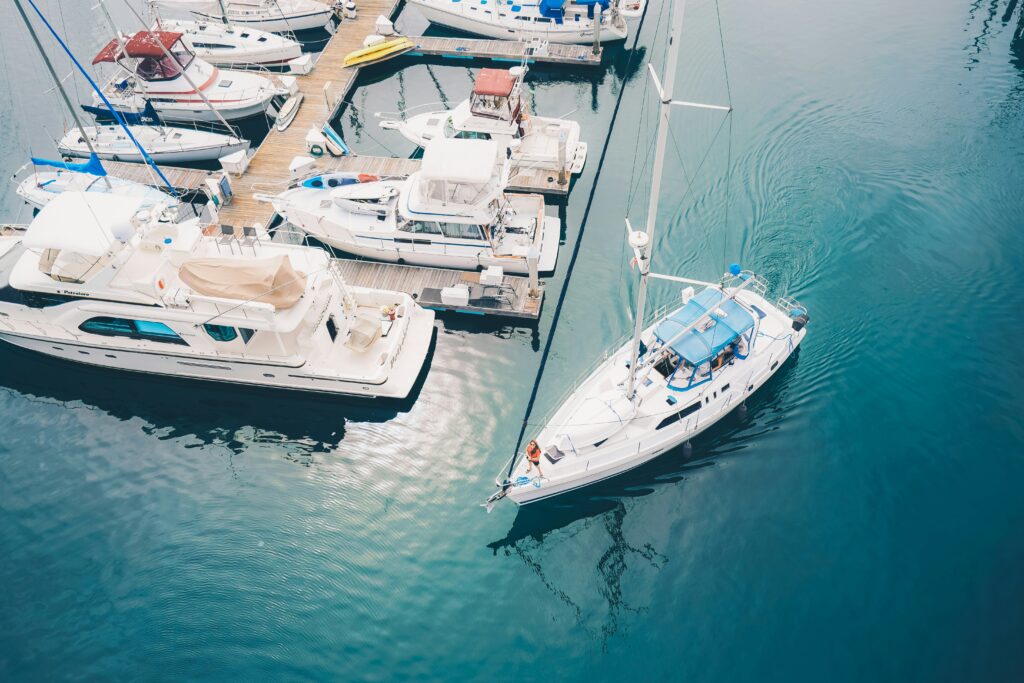As avid boaters, we understand the unique challenges faced by boat owners. The weather can be unpredictable and sometimes hostile, which can significantly affect your marine insurance claims. This blog will explore how weather events can impact your boat and the type of coverage you need to ensure you stay protected.
The Impact of Weather on Marine Insurance Claims
Canada’s diverse climate can present numerous weather-related risks for boat owners. From the extreme storms to harsh winters to wildfires, each presents unique hazards. Understanding these risks is crucial for safeguarding your investment.
Storm Damage
Storms can cause substantial damage to boats, ranging from minor repairs to complete loss. High winds, heavy rains, and powerful waves can lead to:
- Hull damage
- Equipment failure
- Sinking or capsizing
Insurance Implications: Claims related to storm damage can be extensive. Comprehensive marine insurance will typically cover most repairs and replacement costs. However, policies may have specific stipulations regarding storm warnings and safe harbor requirements.
Flooding
Heavy rains or snowmelt can cause water levels to rise, leading to flooding. This can result in:
- Engine damage
- Electrical system short-circuits
- Interior water damage
Insurance Implications: Marine insurance usually covers flood damage, but it’s crucial to understand the specific coverage limits and exceptions in your policy.
Ice and Cold Weather
Canadian winters pose threats such as ice formation and freezing temperatures, which can affect:
- Hull integrity
- Engine and fuel system
- Plumbing and heating systems
Insurance Implications: Winterizing your boat is essential to prevent damage. Some policies may require proof of winterization to honor a claim. Additionally, coverage for ice and freezing damage might be an add-on, so check your policy details.
Lightning Strikes
Lightning strikes, though less common, can be devastating, causing:
- Electrical system damage
- Fires
- Structural damage
Insurance Implications: Damage from lightning is typically covered, but the policy might stipulate the use of lightning protection systems to mitigate risk.

Essential Marine Insurance Coverage
To navigate the risks posed by Canada’s diverse weather conditions, it’s vital to have the right marine insurance coverage. Here are key components to look for in your policy:
- Hull and Machinery Insurance: This covers physical damage to your boat’s hull and machinery due to weather events or other accidents. Ensure this coverage includes not just the market value but also the replacement costs.
- Protection and Indemnity (P&I) Insurance: This provides liability coverage for bodily injury and property damage to third parties. In the event of a weather-related incident, P&I insurance can protect you from significant financial liabilities.
- Agreed Value Coverage: Unlike actual cash value policies, agreed value coverage ensures you receive a predetermined amount if your boat is declared a total loss. This can provide better protection against depreciation.
Tips for a Smooth Claims Process
In the unfortunate event of weather damage, understanding the claims process can help ensure a smooth resolution.
Document Everything
- Take photos and videos of damage before any repair work begins.
- Keep receipts for all repair and maintenance services.
Understand Your Policy
- Review your policy regularly and understand your coverage limits and exclusions.
- Keep updated on any policy changes or requirements, such as winterization clauses.
Work with a Trusted Broker
- An experienced insurance broker can help navigate complex claims and ensure you have adequate coverage tailored to your specific needs.
Reach Out to Your Broker
Weather can be your boat’s biggest adversary, but with the right marine insurance coverage, you can weather the storm. As brokers, our goal is to help you understand and mitigate risks, ensuring you can enjoy your time on the water with peace of mind. Don’t hesitate to reach out to us for tailored advice and support.



